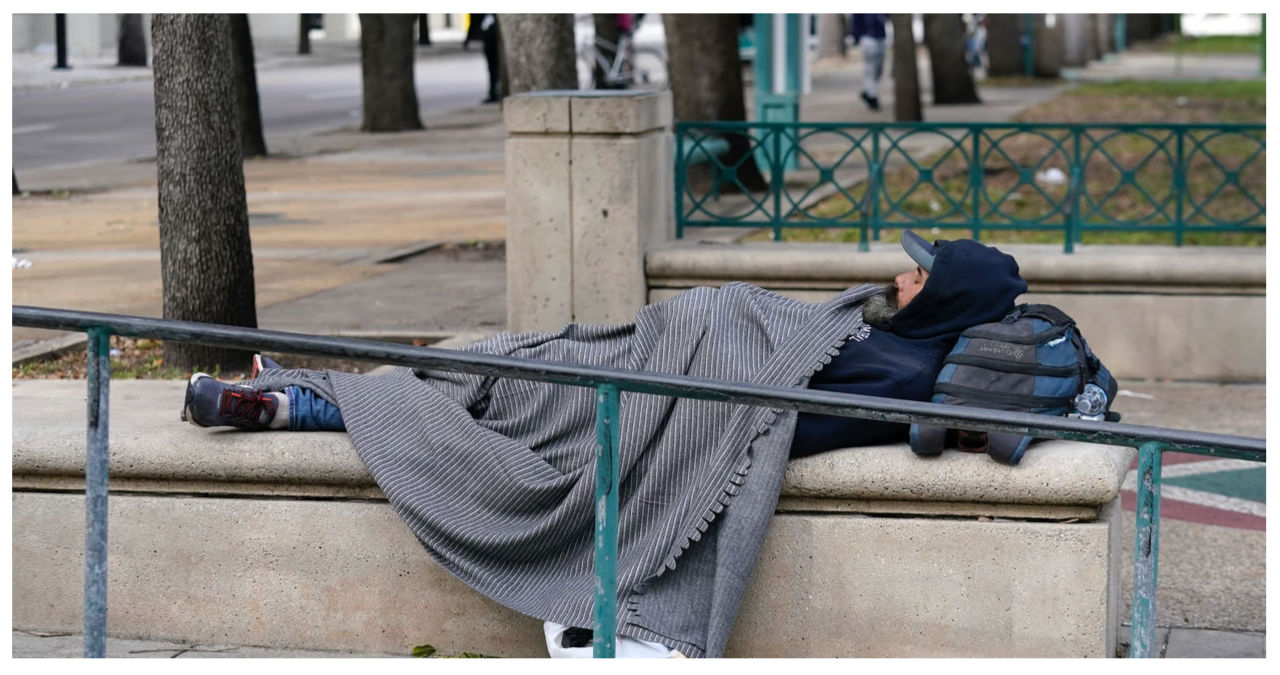Florida’s homeless population will no longer be allowed to sleep on sidewalks or in parks and other public spaces, as stated in a law signed by Republican Governor Ron DeSantis. The new legislation also aims to provide better access to services for individuals experiencing substance abuse and mental health issues.
The new law, which becomes effective on October 1, grants the state Department of Children and Families the authority to supervise local governments in establishing designated areas for the homeless to camp for a maximum period of one year. Those utilizing these encampments will be strictly prohibited from consuming alcohol or illegal substances, while sanitation and security measures will be ensured.
If local homeless shelters reach maximum capacity, encampments will be established, as stated in a news release from the governor’s office. In order for a county or city to create an encampment, the law mandates that regional entities must ensure access to necessary behavioral treatment.
During a news conference in Miami Beach, DeSantis and other proponents of the measure highlighted the impact of allowing the homeless to camp in public spaces. They emphasized that it adversely affects the local quality of life, poses challenges for businesses, and hinders the effective delivery of much-needed services due to the scattered nature of the homeless population.
According to DeSantis, he believes that striking the right balance is crucial in this situation. He emphasizes the importance of prioritizing public safety above all else.
Florida’s homeless population in 2023 was estimated to be around 30,700 during the Legislature’s most recent session. Although this number is relatively small compared to the homeless populations in larger U.S. cities, the sponsors of the law expressed concerns that it could potentially worsen due to Florida’s rapid population growth.
“This bill may not completely eradicate homelessness, but it marks an important beginning,” expressed Republican state Representative Sam Garrison. “It unequivocally declares that in Florida, we are determined to protect and preserve our public spaces.”
Critics argue that the law has been designed with the intention of gathering the homeless population and concealing them from the public eye.
During a debate earlier this year, Democratic state Sen. Shevrin Jones expressed his concern regarding a bill that aims to address homelessness. He stated, “This bill does not and will not tackle the underlying and more significant cause of homelessness. We are simply rearranging the visibility of unhoused individuals without providing an effective plan for those experiencing homelessness.” Senator Jones highlighted the need for a comprehensive approach that goes beyond surface-level changes.
According to DeSantis, the new law takes a distinctive approach by promising to offer the necessary services that homeless individuals often require.
According to the governor, it is crucial to have services in place to assist individuals in recovering from difficult situations and getting back on track. He emphasized the significance of preserving the citizens’ quality of life in Florida.
Starting in January 2025, residents, local business owners, and the state attorney general will have the legal right to file a lawsuit in order to prevent cities or counties from permitting homeless individuals to camp or sleep on public property.



